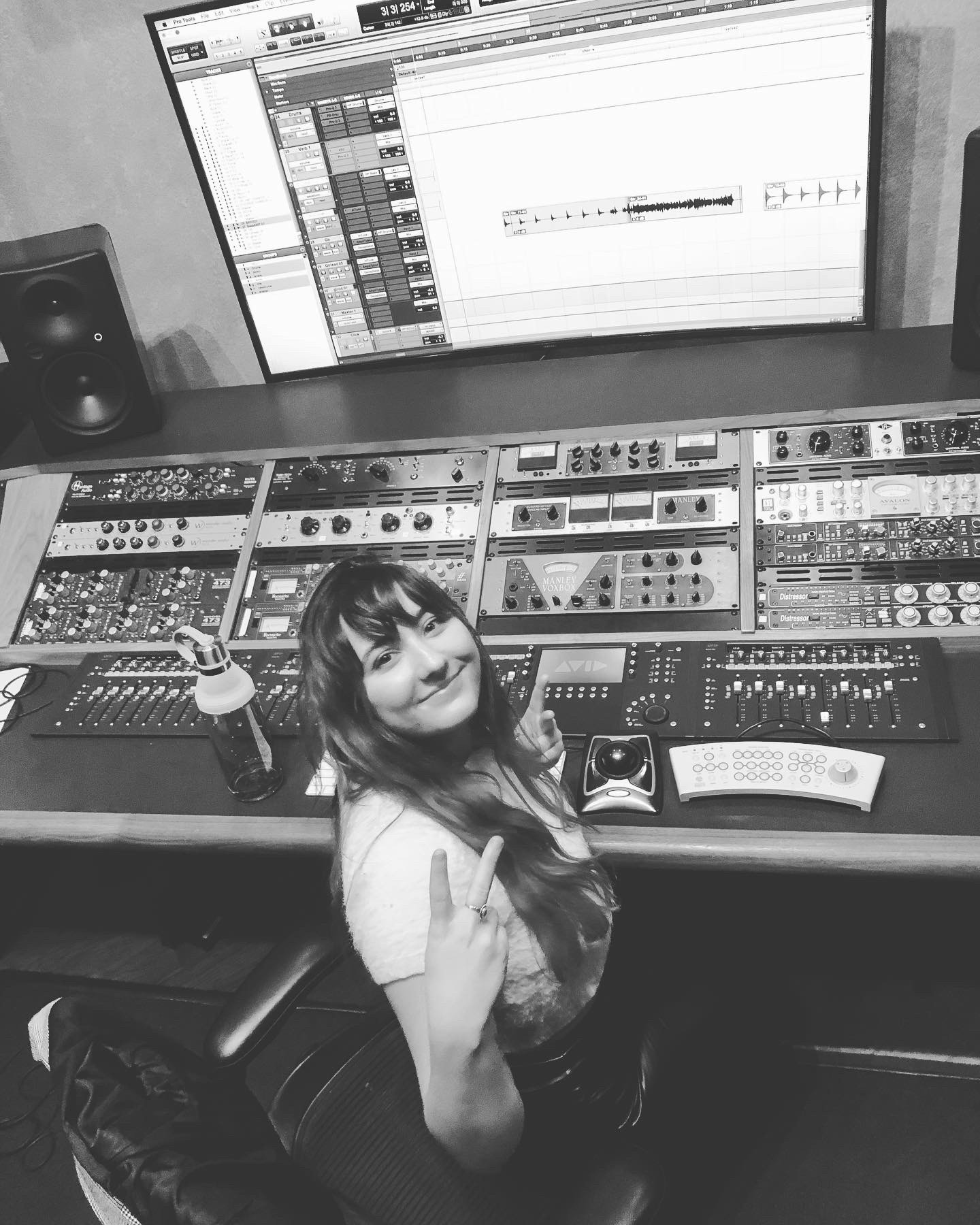On my last blog, I talked about recording Posival. I know I promised my next one would be about the mixing process for this album, but we are going to take a pause on that. The reason we are taking a pause is that one of my very good friends that is also a (badass) live sound engineer just dropped the first episode of her new podcast called “Women In Audio” today! I was lucky enough to be her very first guest too. What I am going to do is break down some of the key conversations that took place during the podcast.
Work Ethic
Tangela and I talked about music and what it means to us, amongst many other things. I’ll break down here the topics that specifically pertain to audio engineering. The first thing she asked me (that was audio-specific) was how I record my bands’ music. I know I’ve written about the recording process for my band’s music before, so I won’t go too much into that. What I will mention is the reason I am able to record my own bands’ music out of different studios. I am able to do these things because, from the moment I started engineering, I was a go-getter. A question Tangela asked me was *essentially*, “How do you gain those people’s trust, and how do you get to that point?”. I recommend from the moment anyone starts this journey that they DIVE right in. Be the first one there, and the last one to leave. Study. Learn. Ask so many questions. Be the first one to get up during a session when the head engineer is needing a microphone fixed. Don’t be shy in that regard. People will notice your work ethic, and opportunities will flourish from there. Another interesting question she asked me that I’ll lump into this topic is “Did you feel like you had to work harder (as a woman) to be good?” My answer was, yes I did, but this industry is so hard, to begin with, EVERYONE has to. I explained how I was very lucky to be at a tech school where I never felt talked down to, or out of place even though I was one of four women there at the time. I know that’s not always the case especially at tech schools for audio. I did touch on a couple of situations that were slightly sexist (that had nothing to do with where I’ve interned or gone to school) but all in all, I’ve been very lucky to have had a good experience as a woman in this field. I think that comes from me knowing to set boundaries very early on in my career.
Credits
Credits, and how to obtain them as an hourly worker. Credits have always been a struggle for me because it does take you having to ask for them. Most audio engineering work is hourly, and once you are done with a project- you are done. That doesn’t mean we shouldn’t get credits on huge platforms though. I’ve struggled to become a part of The Recording Academy for years because you have to have 12 separate credits on AllMusic.com. The way to get these credits onto AllMusic.com is by submitting a PHYSICAL copy of the album. That is crazy to me because in this day and age not that many people are recording albums. I record more singles than anything and most artists/bands are not printing any physical copies of their single. That doesn’t make the work I have done invalid, or *not professional*. That’s just what the industry has been moving towards for years, and we need to move with it.
Payment
Being paid is something I’ve written about before and how do you figure out what to charge someone when you’re first starting out? How to make a contract? How to be confident enough in your work and when it’s time to up your prices. When she asked me these questions I put it simply. My music business teacher asked me “How much do you need to live?” We made a template and broke down all my bills and figured out how many bands I need to reach out to a month and how many bands I need to be working with on a monthly/yearly basis to survive. When I first started out I charged the bare minimum of what I needed to survive. Luckily, I had other jobs supplementing my income so I didn’t have to rely solely on freelance engineering. I think being as logical as possible when it comes to pricing is the best way to go about it. Ask yourself those questions, and be honest with yourself about where you are in your career. Whether you are just starting out and maybe charging too much or you’ve been doing it for years and you’re charging too little. Either way, (this goes without saying and I’ll end this here) KNOW YOUR WORTH.
Please go listen to my friend, Tanglea Lamb, and her podcast, “Women in Audio”. She is having intelligent conversations with the amazing women that occupy this field. It’s so important for our experiences, knowledge, and stories to be heard on platforms like what Tangela is starting, and what SoundGirls has been doing for a good chunk of time now.
Spotify Women In Audio podcast
SoundGirls List of Women in Audio Podcasts
